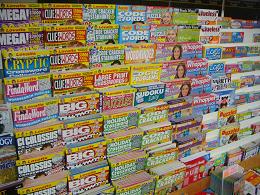 Discover magazine published an excellent article in April 2008 about the carbon footprint of each issue. It wroked back the carbon cost of each issue from in-the-field news gathering through production, the retail and subscription distribution channels and, ultimately, to recycling.
Discover magazine published an excellent article in April 2008 about the carbon footprint of each issue. It wroked back the carbon cost of each issue from in-the-field news gathering through production, the retail and subscription distribution channels and, ultimately, to recycling.
The article got me thinking about the carbon footprint for a copy of Discover purchased here in Australia. It would be far greater by the time you add the cost of shipping product to Australia and distributing this on trucks across the country to newsagents.
Discover is not the only overseas title we carry. Indeed, there are hundreds being air and sea freighted to Australia for distribution through the newsagency channel. With a (generous) estimated average sell through of 50% and the unsold stock being returned, the carbon footprint on these imported titles is significant.
On environmental grounds alone, the distributing overseas titles here needs to be reassessed. In some cases, such as Discover, they serve a purpose and fill a genuine need while in other cases, crosswords, craft titles and home furnishing titles for example, they are filler taking sales from an excellent range of locally produced product. The environmental impact of this unnecessary stock ought to bar them from entry. Yet we have them because magazine distributors make it cheap to distribute them without allowing for the environmental cost.
Take crosswords, I’d love to work out the carbon footprint of a Lovatts crossword title and a Penny Press crossword title. I suspect the difference would illustrate why we need to restrict overseas titles in segments where consumer interest is well satisfied with local printed and published titles.
Publishers are aware of environmental issues. Surfing magazine was onto this in 2007 – but only through an offsets program. The PPA in the UK undertook some research into this in May 2008. FIPP is also doing work in this area. There is an interested related discussion at Dead Tree Edition.
Just as packaged foods warn us about fat, sugar and sodium and washing machines are rated on energy and water efficiency, maybe products such as magazines ought to have a carbon footprint rating. At the very least, there could be a warning sticker on the cover of overseas titles in a category well serviced with local and more efficient titles.
We have brought in a range of pencils, notebooks and other items with excellent green credentials. The pencils are made using recycled newspapers. The paper in the notebooks is made from sugarcane pulp. The manufacturer uses wasted pulp, a by product of sugarcane, to produce the paper in the notebooks.